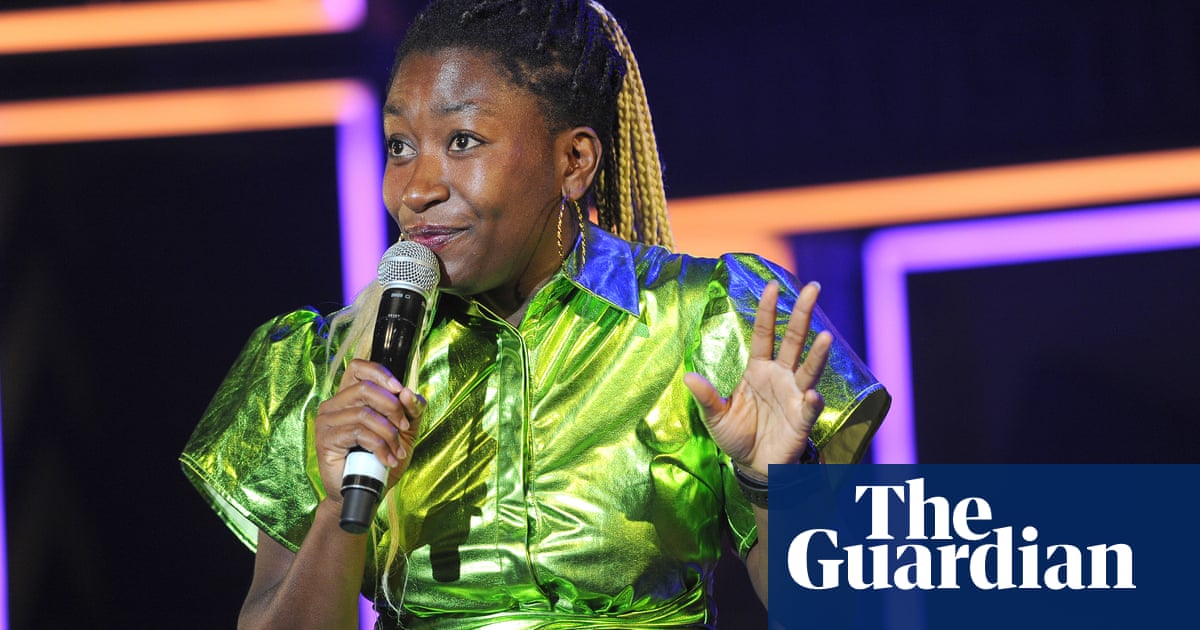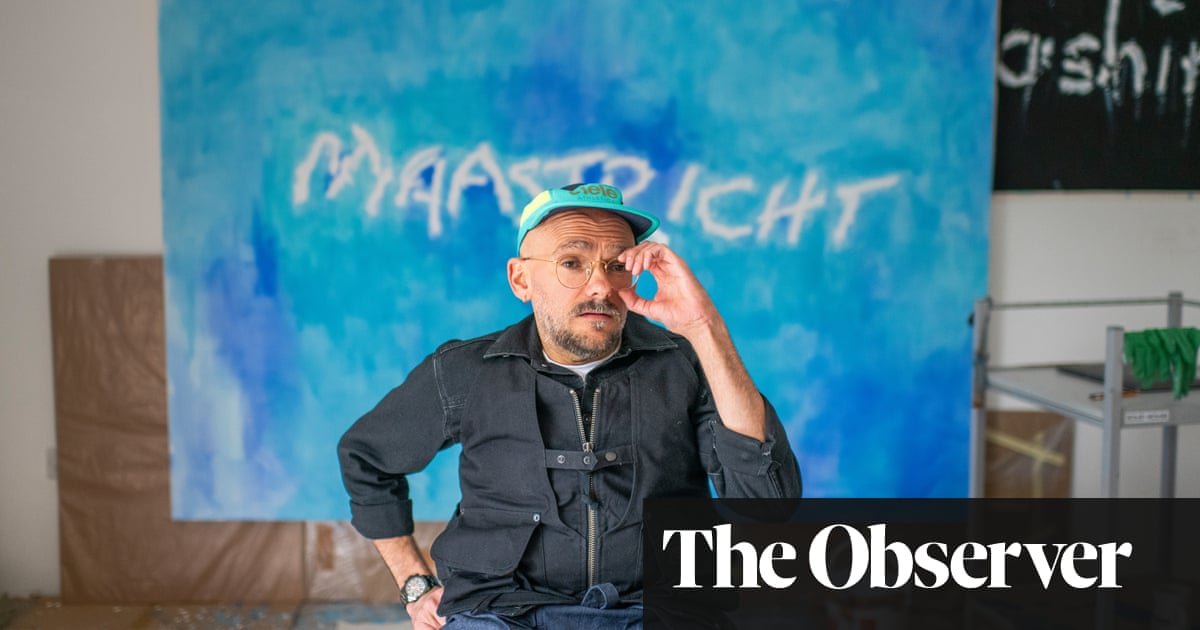
You’re in a massive tent. People are walking in and out, chatting, spilling drinks. A mishmash of music pounds in the background. The crowd is wildly hungover or laying the foundations for tomorrow’s comedown. Perfect conditions for a comedian, right?
“Some performers wouldn’t touch the festival with a bargepole,” says Charlotte Lang, who manages Glastonbury’s cabaret tent, where she’s been programming acts for a couple of decades. “It’s quite a Marmite thing.” But comedy can be the perfect escape for audiences. “It’s nice to take yourself out of the mayhem,” Lang says. “Bring your cushion, kick back and enjoy.”
Sophie Duker loves music festivals and has played many as a comedian. “Seeing music at a festival is quite stressful – you have to find it, get near the front, then wait for an hour while someone pisses on your leg,” she says. “Comedy is a delicious side quest. The memories you make doing zany things is why you come to music festivals. Come for Lil Nas X, stay for a clown who drops their trousers in a tent at 2am.” Festivals allow you to be “bigger and more bombastic”, says Duker. “I like to slag off the music headliner.”
The cabaret tent hosts clowns, character comedians and musical acts alongside standups. This year, comic Mawaan Rizwan is bringing dancers and musicians with him. Being able to fill the tent – with people and presence – is crucial. “It’s a 2,000-capacity tent, so will that act be able to transfer to a big venue and attract an audience?” Lang says. “It’s soul-destroying performing to only 300 people in such a cavernous stretch of canvas.”
Comedy is now taken seriously at many UK music festivals – it’s central to Latitude and others. In the past, the cabaret tent “was known as a place to skin up and fall asleep,” says Lang. “I thought: I’m not having that! We’ve worked very hard to provide interesting entertainment and would like you to enjoy it. That’s what happens now.”
Jacob Hawley has been performing at music festivals since 2017. He says there are two types: “The off-your-nut, 19–24-year-old, bucket-hat-and-vape festivals, where if you’re not on at the perfect time you’re screwed, because everyone is either mashed or coming down.” Then there are the middle-class, artsy festivals “where the dog comes, kids dress up, parents get a bit pissed”. These hold different challenges. At Hawley’s first festival, when many of his jokes were about partying, he was confronted with an audience of kids. He pivoted to audience interaction: “The problem was, I was trying to do crowd work with nine-year-olds dressed as Shrek, and border collies.”
During the day, comedians in conversation, live versions of podcasts and standup offering “interesting viewpoints in a humanistic way” do well, says Lang. In the evenings, there’s space for lively and experimental comedy.
Whatever the time, people don’t want anything serious. “People aren’t there to be challenged,” Hawley says. “The acts that do really well are fun. Whether that’s one-liners or props, as long as there’s an optimism to it, it really lands. If you try anything that has a bleakness to it, no one’s ready.”
From the stage, comedians can see how they’re doing by how many people stay put. “It’s so much easier to walk out,” says Duker. “The constant traffic and noise are at levels that would be like a fever dream if it happened at a normal gig.”
Staying humble is key. “You’re the lowest point on the spectrum of performers, down there with the poets,” says Hawley. Duker agrees: “People have come to drink cider and escape their lives, you’re just adding to the symphony of enjoyment.” But there’s always the potential for a rock star moment, like when Hawley found himself hanging out with the Strokes: “In 10 years as a comedian, not many things have felt particularly showbiz, but that did.” The glamour of readily available toilet paper backstage is a bonus too, says Duker: “It has ruined me for attending festivals as a civilian.”
Performers generally get festival tickets, so Lang advises they pace themselves. Duker says backstage can be debauched: “You get to see a range of comics losing their minds. It’s a nightmare to get booked for the last slots on the Sunday. You need to keep it together until your set and not everyone manages that.”
In 2015, it looked like Simon Brodkin might miss his Glastonbury set. He’d been detained after crashing Kanye West’s headline performance. Fortunately, his booking in the cabaret tent was leverage enough for release. “He bounded over and his show was on fire because he was so revved up,” Lang says.
When performers embrace the mayhem, it can make for unforgettable moments. Duker remembers a sketch show descending into an audience-wide playfight. At one small festival, Hawley was the last act: “People were way too far through the looking glass. They started chanting for me to take my shirt off. I finished my set in my socks and pants with most of the audience in a similar state and everyone cheering. The whole thing broke down and became chaos. I think that’s kind of what it should be.”
Duker agrees: “I like that it’s de facto chaotic and anarchic. The thing that makes me the proudest of British festivals is the vibes. Comedy performers are a massive part of that.”












